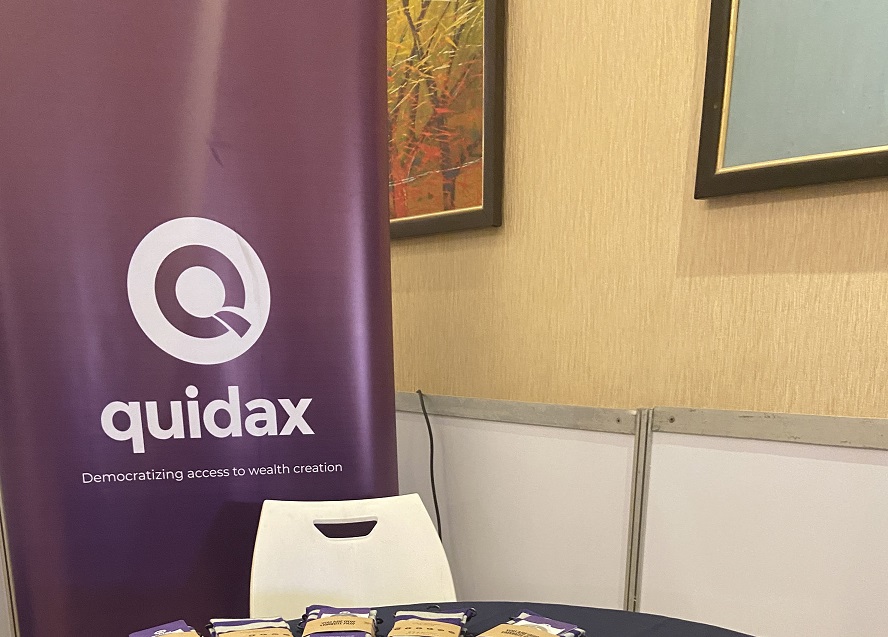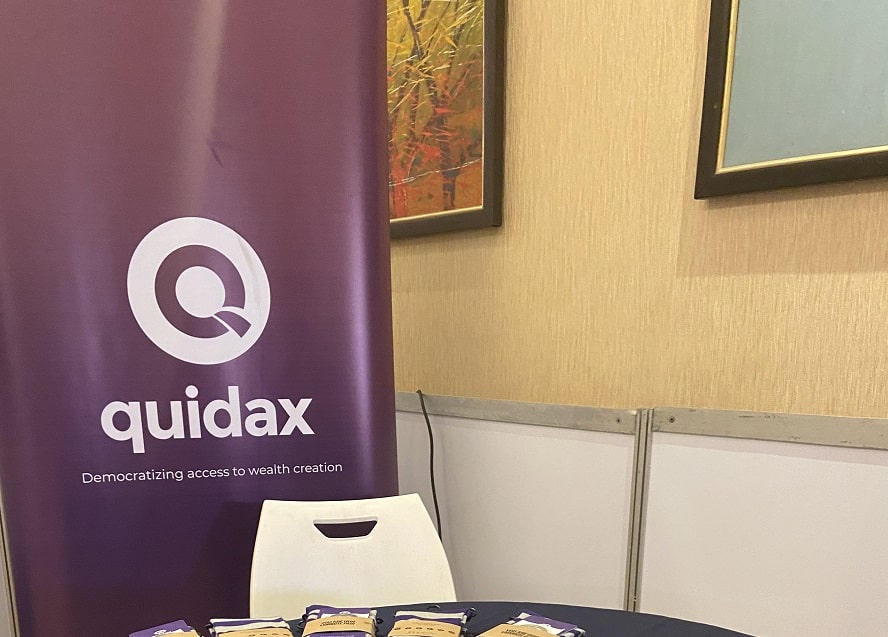
||Photo by Nick Chong on Unsplash
Goedendag,
Victoria from Techpoint here,
Here’s what I’ve got for you today:
- Quidax lists cNGN
- Why 90% of startups fail
- Loan defaults force Decagon to pivot
Quidax lists cNGN

Quidax, a Nigerian crypto exchange, just listed cNGN, the country’s first regulated naira-backed stablecoin. This comes a month after Busha, another licensed exchange, did the same. With two major platforms now supporting cNGN, it’s clear Nigeria is slowly warming up to digital currencies, finding a balance between regulation and adoption.
Launched in February 2024 by the African Stablecoin Consortium (ASC) after three years in the making, cNGN is pegged 1:1 to the naira. The consortium, made up of Convexity, Alpha Geek Technologies, Digital Currency Coalition, and Interstellar, operates under WrappedCBDC Ltd., a joint venture created to push blockchain-based financial solutions. Thanks to Nigeria’s Regulatory Incubation (RI) programme, WrappedCBDC Ltd. got approval-in-principle from the SEC in August 2024, helping cement cNGN’s legitimacy in the country’s financial ecosystem.
With Quidax now listing it, users can send, receive, and trade cNGN, opening up more use cases for payments, transfers, and exchanges. Currently, 121.3 million tokens are in circulation, held by just 127 people, so adoption is still in its early days. But with crypto being a popular alternative for Nigerians dealing with naira depreciation and banking restrictions, cNGN could catch on fast.
The Nigerian SEC has played a huge role in this rollout, shifting from its previous scepticism about crypto to a more structured regulatory approach. Alongside the Accelerated Regulatory Incubation Program (ARIP), the RI programme allows exchanges like Quidax and Busha to operate legally while keeping things in check. But listing cNGN isn’t automatic. WrappedCBDC Ltd. vets every exchange’s reserve management and charges a ₦100,000 verification fee to ensure stability.
So, why cNGN? The ASC hopes it will act as a bridge for Nigerian traders who got cut off when major exchanges stopped supporting the naira. It’s also designed for cheap, fast transactions, with fees as low as ₦150–₦500 ($1 or less) compared to the high costs of sending USDT or USDC on Ethereum. That makes it an attractive option for remittances and everyday payments, especially for small businesses and Nigeria’s unbanked population.
For Quidax, this is another big move in Nigeria’s crypto space. Since launching in 2018, the exchange has built a solid reputation for fast and secure transactions in Bitcoin, Ethereum, and other digital assets. Now, with cNGN in the mix, it’s doubling down on expanding access to digital finance.
Why 90% of startups fail

Startups are popping up all over Africa, and for a good reason, the continent has no shortage of problems waiting for tech-driven solutions. From logistics to healthcare and payments, there’s room for innovation everywhere.
In 2024 alone, Nigeria had over 3,360 startups, leading the pack in Africa, with Egypt and Kenya not far behind. But here’s the thing, despite all this activity, less than half of these startups survive their first few years.
Failure isn’t exactly a popular topic in Africa’s tech scene, mostly because African founders don’t have the luxury of failing like their Western counterparts. Funding is harder to come by, infrastructure challenges are real, and many entrepreneurs are bootstrapping their way through.
Globally, 90% of startups fail — 20% don’t make it past two years, and 45% shut down within five. The odds aren’t great, but understanding why startups fail can help founders avoid common pitfalls.
Sarah spoke with Justin Stanford, a venture capitalist with over 20 years of experience and a general partner at 4Di Capital. According to him, most startups fail for one simple reason: they run out of money. It sounds obvious, but it happens in different ways. A startup that struggles to get product-market fit fast enough or doesn’t scale quickly enough will remain reliant on investor funding. The moment investors lose confidence, it’s game over.
But money isn’t the only issue. Founders can end up clashing, making it impossible to run the company. Sometimes, the wrong investors get involved and mess things up. And let’s not forget competition; big corporations with deep pockets can decide to squash a promising startup simply because it’s getting too close to their territory.
At the end of the day, starting a successful business in Africa is tough, but it’s not impossible. Stanford breaks down why it’s challenging and how to tackle those obstacles in Sarah’s latest story. Read it here.
Loan defaults force Decagon to pivot

Decagon, once known for training software engineers, is switching things up. Instead of focusing on tech education, the company is now helping learners secure admission into master’s programmes abroad.
Per sources, this shift marks a huge change from its original mission of building Nigeria’s next generation of tech talent.
Founded by Chika Nwobi in 2018, Decagon’s intensive six-month programme helped participants land jobs after graduation. Unlike some other coding bootcamps, Decagon’s training wasn’t free. You either paid about $4,000 upfront or took a loan, which, with interest, could climb to $6,000. At first, it seemed like a solid model, but loan repayments quickly became a headache.
Apparently, many graduates didn’t pay back their loans, despite securing jobs. Some even ghosted Decagon completely, refusing to return the laptops they were given during training. This left the startup in a tough spot, as they had to step in and cover the repayments to avoid ruining their relationship with financial partners.
On top of that, Nigeria’s economic situation didn’t help. With inflation rising and the Central Bank hiking lending rates in 2023 and 2024, taking out a loan became even riskier. This scared off potential students and made it even harder for Decagon to sustain its model.
To fix things, Decagon tried offering a cheaper, hybrid learning programme, costing ₦550,000. But even with a lower price tag, students weren’t too keen. Many still preferred the pricier on-site training. With these struggles piling up, the company had to rethink its entire approach.
What’s more, the company isn’t the only one making big changes. Andela, which once trained junior developers, now focuses on placing senior talent in jobs. AltSchool, on the other hand, has gone with a different model, charging a small application fee and monthly payments, but with no job guarantee.
In case you missed them
- Egyptian fintech Valu plans IPO as African startups eye public markets
- Bumpa Co-founder and CTO, Adetunji Opayele passes away
What I’m watching
- A united African economy: The impossible dream? | Business Beyond
- What Life Was Like For Normal People In Biblical Times | Living In The Time Of Jesus | Timeline
Opportunities
- Flutterwave is hiring to fill in several positions. Apply here.
- OPay is looking for a State Manager. Apply here.
- Interswitch is hiring a Senior Software Developer. Apply here.
- PalmPay is recruiting a Business Developer. Apply here.
- Standard Bank Group is looking to fill several positions across Africa. Apply here.
- Paystack is hiring for several roles. Apply here.
- Moniepoint is hiring for several roles. Apply here.
- Follow Techpoint Africa’s WhatsApp channel to stay on top of the latest trends and news in the African tech space here.
Have a superb Thursday!
Victoria Fakiya for Techpoint Africa.
